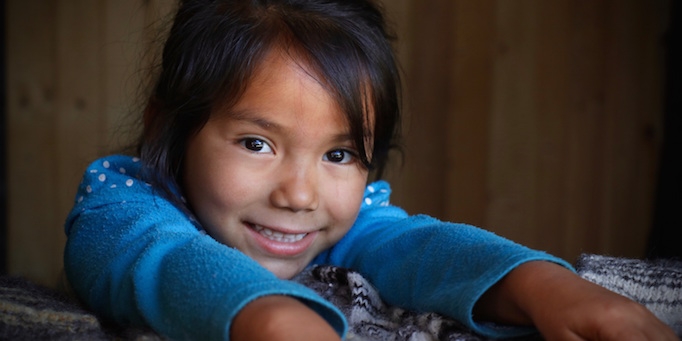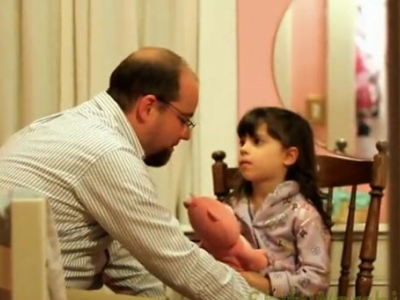
Raising grateful kids in an ungrateful world
Things to start (and stop) doing to help grow a culture of gratitude in your family.
There’s an epidemic going on in the kids of our culture and generation: the epidemic of ingratitude. The symptoms are obvious:
- The whining, “Mum, I HATE this meal!”
- The tossing aside of a present lovingly given
- The jealousy when a sibling gets something good
- The constant focusing on the negatives of the day instead of the layers upon layers of blessings experienced
We all want to raise grateful kids. The Bible actually commands thankfulness and even rejoicing in all situations (1 Thessalonians 5:16-18, Philippians 4:4)! But if we’re honest, it’s not only our kids who experience this lack of joy and thankfulness in the everyday, it's us too. Psychologist Dr Archibald Hart warns about the growing number of children and adults who are increasingly unable to experience pleasure, and this is contributing to our cultural epidemic of ingratitude. 1
Why is this happening to us?
There are many possible causes for our lack of gratitude. Yet perhaps at the forefront of these is an incredible increase in material prosperity in the West, combined with an increase in just how exciting and stimulating our days are thanks to technological innovations. With so much great stuff, and so many engaging stimuli and activities in our life, we find it harder and harder to feel pleasure at the little things - the sweet scent of spring, a baby’s hand clinging onto a finger, a kid’s wobbly tooth, a new discovery, an ice cream. Our kids demand more and more, and like them, we too keep striving to somehow recapture the sense of pleasure and thankfulness we know we need.
Raising grateful kids: the don’ts
Let’s start by looking at some tried-and-true parental tactics which don’t actually create grateful kids.
1. Teaching kids to say “thank you”
Teaching children to say “thank you” is a good way of helping them pause and acknowledge when something has been given to them, however using these magic words out of habit will make your kids polite, not necessarily grateful. Gratefulness is a heart issue, and unless the child’s heart already is grateful, the words themselves can’t make it so.
2. Lecturing about poverty
Have you ever done the old for-goodness’-sake-quit-whinging-and-think-about-the-poor-children-in-Africa rant to an ungrateful child? It's tempting in times of whinging to encourage your child to compare downwards, but ultimately this tactic is fruitless and unhelpful. If they compare to an “African”, why wouldn’t they also compare to the richer kids? Each of us needs to learn contentment in our own situation, regardless of how much other people do or don’t have. Comparing simply cannot make an ungrateful heart find pleasure.
Raising grateful kids: the dos
If those tactics fail, what can we do? Here are some ideas:
1. Pray for your kids
Only God can change hearts. We can influence our kids, but not create or change them. We have to start with prayer.
2. Model gratefulness
Modeling gratefulness is harder than it looks. It means taking time to enjoy and comment on things every single day which are pleasing to you. You can’t do it in a rush – you have to stop and gaze at a flower to really appreciate it. You’ll have to really come over and be with your kid for a minute when they call out, “Hey mum and dad, look at THIS!” You’ll have to put your phone down and really look out for things to delight in together. And whatever tips and tricks you use to help them to be grateful, do it for yourself as well!
3. Praying, journalling, and expressing your thanks
It’s great to purposefully express things you are genuinely thankful for. Take time to thank God, write it down in your journal, or write a thank-you note to a person who did a kind thing for you. Help your kids to do the same. Making a regular habit of expressing thankfulness (even for tiny things) helps us to keep an eye out for the good things, and enjoy them all the more.
4. Limit their stuff
Who is more grateful for a new toy: a kid with a thousand, or a kid with three? It doesn’t take a brain surgeon to figure out that the more we have, the less grateful we are for what we have and what we get. Therefore, if you want your kids to appreciate their birthday and Christmas presents more, you almost certainly have to give them fewer. If they don’t appreciate new toys, help them give away 90% of the ones they have. In our materialistic culture, giving away stuff is an absolutely vital skill for our lives, sanity, and, ultimately, our gratefulness. Teach it to your kids from the womb.
5. Let them get bored
Don’t rush to entertain your little ones. Let them muck around at home on a Saturday morning (with no technology!), walk in a park, get bored and create basic ways to fill the boredom. Only bored kids will really get the most out of an exciting trip, a visit to a friend’s house or a new treat for afternoon tea. Don’t panic when they say, “I’m bored!” – rather, rejoice. It is a prerequisite for creativity, and for gratefulness.
6. Help them choose lasting pleasure over fleeting thrills
My family lives in a crowded Asian city, with no backyard or parks. One time, my six-year-old son and I were at a conference, and enjoying a really fun game of badminton together on the grassy lawn. He was absolutely loving it, as was I! Suddenly, a girl appeared with a game on an iPad – and my son’s pleasure visibly drained out of him. He became anxious and really wanted to watch the game. I tried to reason with him about the rarity of us spending time playing on a lawn together, and how we can watch screens any day at home. He was unconvinced. Eventually, I told him that he wasn’t allowed to watch the screen. We resumed playing and his pleasure immediately began to increase – but even more so when, five minutes later, the girl packed away her iPad.
The pull of technology is very, very strong for children and adults alike. Help your kids (or force them!) to set limits, and to fully engage in the healthy “real-life” moments they have with the people they love.
7. Remember your own childhood memories
What are your happiest childhood memories? Make a list. Then ask your siblings for theirs. You might be surprised what you find! Mine include doing the washing up with my brother and sister; catching raindrops with a cup; playing with toy mice with my sister on long Sunday afternoons; and long car trips where we sang songs, ate takeaway food, and listened to music (all together!) with my family. Make room for things like this in your children’s lives – not the high-powered, super-exciting stuff, but the everyday, relational stuff which ultimately builds a very deep sense of happiness and gratefulness.
May God help us to learn thankfulness, and genuinely rejoice in him, whatever circumstances he has placed us in.
[1] Archibald Hart, 2007: Thrilled to Death: How the Endless Pursuit of Pleasure Is Leaving Us Numb
For more articles from Growing Faith, subscribe to our monthly e-newsletter.
To hear about the latest books and resources from Youthworks Media, subscribe here.







